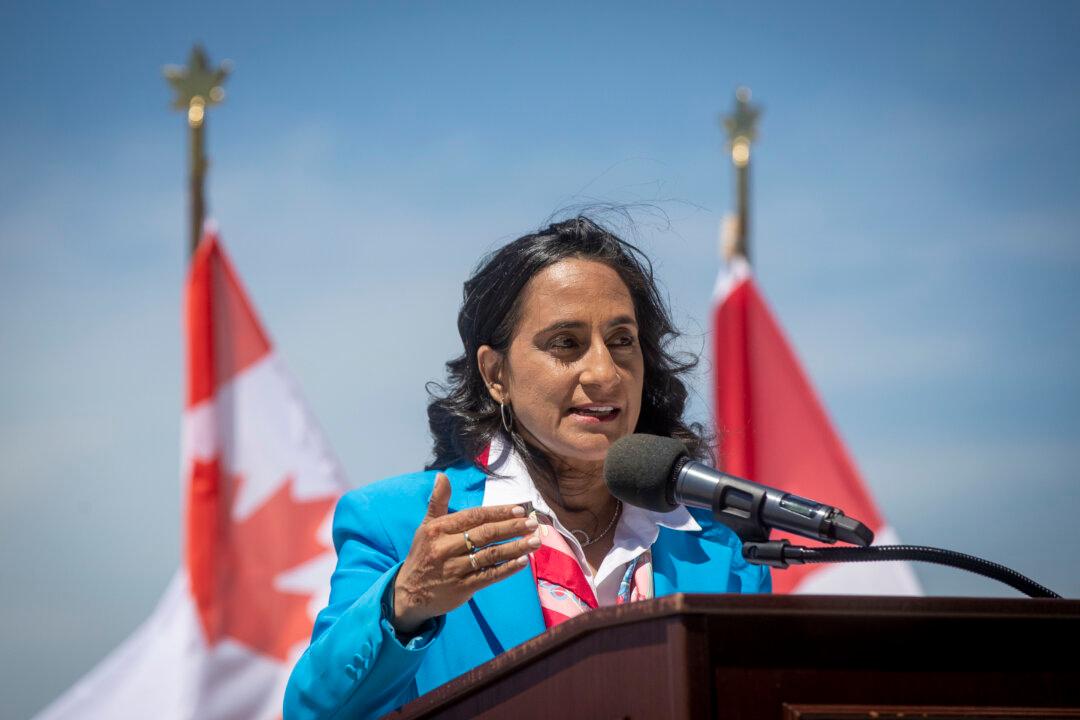Defence Minister Anita Anand says China is at the core of Canada’s new Indo-Pacific Strategy, and pledges to challenge Beijing in defence of the region’s stability. However, she would not say specifically whether Canada would defend Taiwan’s de facto sovereignty should China launch a military invasion of the island.
While outlining the defence and security elements of the government’s Indo-Pacific strategy at a virtual press conference on Nov. 27, Anand was asked whether Canada would defend the self-ruled democracy if China invaded.





